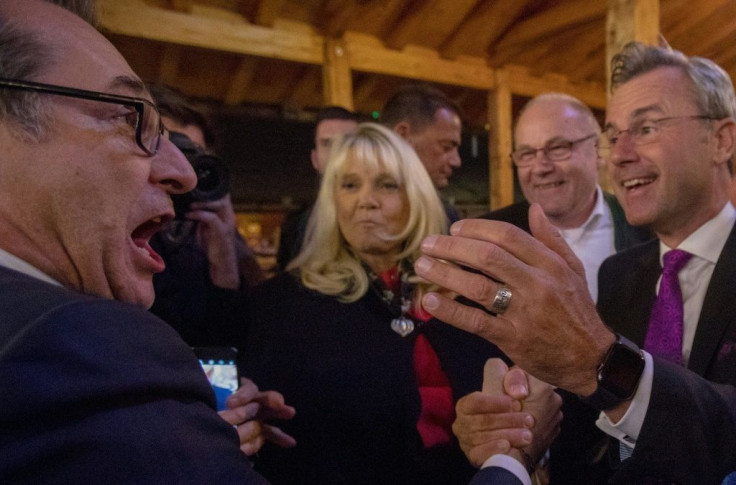Austria Far-right Voters Unfazed By Ibiza-gate Scandal

Austria's far-right Freedom Party (FPOe) looked to be in serious trouble earlier this year when then leader Heinz-Christian Strache was caught up in a bribery scandal linked to Russia but voters seem unfazed and ready to back the party again in Sunday's elections.
"The goal is at least 20 percent" in the polls, Michael Oberlechner, an FPOe Vienna representative, tells AFP as supporters huddle around wooden tables at the party's "Oktoberfest" beer festival.
In the 2017 elections, the party won 26 percent of the vote and entry to the coalition government led by centre-right Sebastian Kurz's People's Party (OeVP).
That government proved short-lived when video footage surfaced in May appearing to show Strache, who was also vice chancellor to Kurz, offering public works contracts in return for campaign help to a supposed Russian oligarch's niece.
The video sparked uproar and brought down Kurz's government, with many predicting the end of both Strache and the FPOe.
But it has not worked out that way, with the FPOe, now led by Norbert Hofer, fighting it out with the Social Democrats (SPOe) to get a seat at the table as the country's second strongest party.
'Now more than ever'
Hofer has been on the campaign stump with Strache who has been pressing the flesh and taking selfies with eager fans at the Ocktoberfest gathering.
Strache ruled the party for 14 years but had to stand down in May when German media published the video footage, secretly filmed on the Spanish resort island of Ibiza ahead of the last elections.
Undaunted, the 50-year-old from Vienna remains a strong presence, with his wife Philippa also running for a seat in parliament.
Monday's arrest of Strache's former bodyguard -- who is allegedly connected to the making of the video, according to Austrian media -- also seems to have had little impact on the veteran politician who has dismissed all investigations against him as political attacks.
"It's a shame for Strache because he was caught in the Ibiza-gate scandal but all political parties have some dirty laundry," says 55-year-old bank employee Manfred Schneider, echoing other party supporters' comments to AFP.
With the motto "now more than ever", the FPOe has managed to channel people's anger away from the video's content and toward those -- as yet unknown -- behind it.
"There's more interest in finding out who's behind the video than what is in it," political analyst Johannes Huber told AFP.
Days after the video excerpts were published, leading to the government's collapse, the FPOe got 17 percent in European elections, just slightly less than in 2014 polls.
For Sunday's elections, the party is expected to gain around 20 percent of votes, marking a drop from 2017 but not a collapse.
"The time when the FPOe's clientele was made up of protest votes has gone... the party has been able to build a considerable base of loyal voters," the weekly magazine Profil said.
'Drinks fuelled' night
The FPOe, founded in the 1950s by former Nazis, is one of Europe's most entrenched far-right parties. It governed in a coalition with the conservatives once before, in the 2000s.
In addition to citing immigration fears, another constant has been to reject the two historically main parties, the Social Democrats and the conservatives, at least one of which has ruled Austria since World War II.
According to Armin Wolf, an anchor with public television channel ORF, the recipe for success of the FPOe and other populist parties lies in their ability to seduce voters "not in spite of their gaffes... but precisely because this type of behaviour (which undercuts)... the so-called diktat of political correctness and arrogant elites".
The outraged reactions of far-right critics reinforces the logic of victimisation, Wolf said in a recent commentary on the "Ibiza-gate" affair.
In the days after the video's release, Strache's Facebook page, with its 800,000 subscribers, was flooded with messages of support for the man, who defended himself by pleading that his promises hinting at government contracts and other dubious proposals were not to be taken seriously, having been made in a "drinks-fuelled" night.
© Copyright AFP 2024. All rights reserved.







